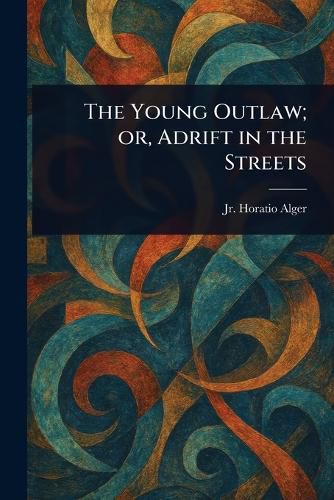Readings Newsletter
Become a Readings Member to make your shopping experience even easier.
Sign in or sign up for free!
You’re not far away from qualifying for FREE standard shipping within Australia
You’ve qualified for FREE standard shipping within Australia
The cart is loading…






This title is printed to order. This book may have been self-published. If so, we cannot guarantee the quality of the content. In the main most books will have gone through the editing process however some may not. We therefore suggest that you be aware of this before ordering this book. If in doubt check either the author or publisher’s details as we are unable to accept any returns unless they are faulty. Please contact us if you have any questions.
"The Young Outlaw, or, Adrift in the Streets" by Horatio Alger paints a vivid picture of 19th-century New York City and the challenges faced by its most vulnerable inhabitants. This compelling story explores themes of homelessness and street life through the experiences of young people navigating the harsh realities of their world. As a classic coming-of-age tale, it delves into the lives of orphans and those struggling to survive in a society often indifferent to their plight. Alger's work offers a glimpse into a pivotal period in American history, capturing the spirit and struggles of individuals striving for a better future. This meticulously prepared edition allows readers to experience the enduring appeal of Alger's storytelling and his insightful portrayal of historical social issues. A powerful and timeless narrative, "The Young Outlaw" resonates with its exploration of family life and the resilience of the human spirit in the face of adversity.
This work has been selected by scholars as being culturally important, and is part of the knowledge base of civilization as we know it.
This work is in the public domain in the United States of America, and possibly other nations. Within the United States, you may freely copy and distribute this work, as no entity (individual or corporate) has a copyright on the body of the work.
Scholars believe, and we concur, that this work is important enough to be preserved, reproduced, and made generally available to the public. We appreciate your support of the preservation process, and thank you for being an important part of keeping this knowledge alive and relevant.
$9.00 standard shipping within Australia
FREE standard shipping within Australia for orders over $100.00
Express & International shipping calculated at checkout
Stock availability can be subject to change without notice. We recommend calling the shop or contacting our online team to check availability of low stock items. Please see our Shopping Online page for more details.
This title is printed to order. This book may have been self-published. If so, we cannot guarantee the quality of the content. In the main most books will have gone through the editing process however some may not. We therefore suggest that you be aware of this before ordering this book. If in doubt check either the author or publisher’s details as we are unable to accept any returns unless they are faulty. Please contact us if you have any questions.
"The Young Outlaw, or, Adrift in the Streets" by Horatio Alger paints a vivid picture of 19th-century New York City and the challenges faced by its most vulnerable inhabitants. This compelling story explores themes of homelessness and street life through the experiences of young people navigating the harsh realities of their world. As a classic coming-of-age tale, it delves into the lives of orphans and those struggling to survive in a society often indifferent to their plight. Alger's work offers a glimpse into a pivotal period in American history, capturing the spirit and struggles of individuals striving for a better future. This meticulously prepared edition allows readers to experience the enduring appeal of Alger's storytelling and his insightful portrayal of historical social issues. A powerful and timeless narrative, "The Young Outlaw" resonates with its exploration of family life and the resilience of the human spirit in the face of adversity.
This work has been selected by scholars as being culturally important, and is part of the knowledge base of civilization as we know it.
This work is in the public domain in the United States of America, and possibly other nations. Within the United States, you may freely copy and distribute this work, as no entity (individual or corporate) has a copyright on the body of the work.
Scholars believe, and we concur, that this work is important enough to be preserved, reproduced, and made generally available to the public. We appreciate your support of the preservation process, and thank you for being an important part of keeping this knowledge alive and relevant.